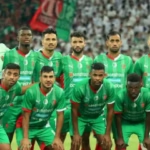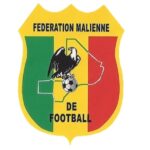DR Congo Women’s team threatens boycott over unpaid bonuses ahead of AFCON qualifier

The Democratic Republic of Congo’s women’s national football team is on the brink of crisis just hours before their crucial Africa Cup of Nations (AFCON) qualifier against Botswana.
The players have threatened to boycott the match in protest over unpaid bonuses spanning 12 games, highlighting ongoing issues of financial neglect and unequal treatment in Congolese football.
Players voice their frustration
In a video circulating on social media, several players, dressed in their national team kits, expressed their frustration with the lack of payment and the repeated broken promises from authorities.
Speaking on behalf of the squad, midfielder Marlène Kasaj openly questioned their treatment by the football federation and government.
Sometimes, we wonder if we are really Congolese and if we serve this country at the risk of our lives, after long journeys and exhausting trips.
And all this, without ever receiving anything for 12 matches now. All the sports ministers only promise without ever acting.
Are we really Leopards?” she stated.
The players’ grievances center not only on the unpaid bonuses but also on what they perceive as systemic discrimination compared to the men’s national team.
Despite their dedication and performances on the pitch, they feel undervalued and disregarded by the country’s football authorities.
Government meeting fails to resolve crisis
Ahead of the match, Sports Minister Didier Budimbu held discussions with the women’s team in an attempt to address their concerns.
However, the meeting failed to yield a concrete resolution, leaving the players disillusioned and still contemplating a boycott.
With the game against Botswana looming, uncertainty remains over whether the Leopards will take the field.
This standoff sheds light on the broader issue of gender inequality in African football, where women’s teams often struggle for the same financial recognition and institutional support as their male counterparts.
The DRC women’s team now faces a pivotal moment, with their protest serving as a powerful statement about the ongoing challenges female athletes face in securing fair treatment.
As the situation unfolds, all eyes will be on the Congolese authorities to see if they take meaningful action to resolve the crisis and ensure that the players receive the financial support they are owed.




